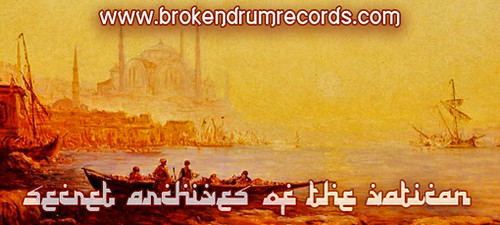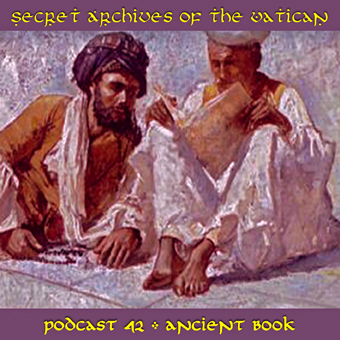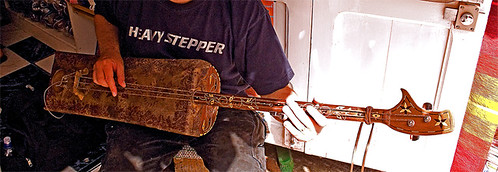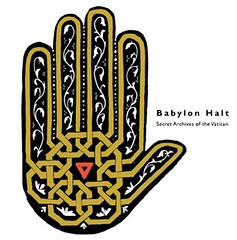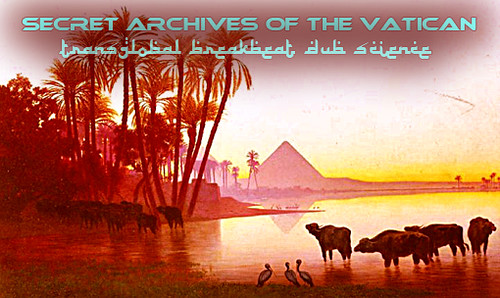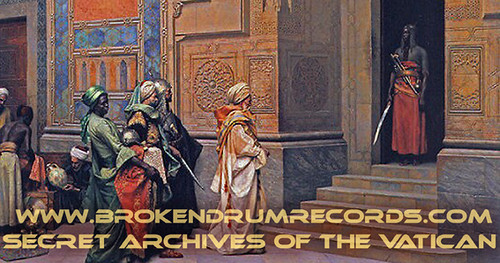
See my previous post, Digital Resistance.
Digital resistance is a political act. It challenges the powers-that-be and re-appropriates powers that belong to us. It returns to us the 'choice' that politicians talk so much about, even as everything they do is set to remove it from us and control it.
However, the tactical use of media and the arts to express resistance is not usually a conscious act by people who want to be politically active in the traditional sense. Heck, politics is boring and irrelevant to most people. Or so they think.
It amazes me sometimes when people say 'I'm not interested in politics'. They're often very willing to have a good old moan about tax rates or the banking crisis, how crap schools are in their area or about how there are never police around when you need them. They don't seem to have made the connection, that these issues and more are all about who we give power to and what degree of power we give them. That's politics. I fully understand why many people don't care about political parties and the grey, self-serving power hungry scum who inhabit them - but to say one has no interest in politics is illogical and stupid. We all care about what happens to us and who's controlling our lives.
It applies in less obvious ways too. Who is deciding what we listen to, read, watch or play? Who sets the boundaries of the choices we have? Even in the realms of music and art, these things are political. There are power brokers with vested interests in things being a certain way, who have the resources to manipulate and direct a somnambulent general public into being mere 'consumers'. I hate that term.
Our little record label, Broken Drum Records, and its new offshoot BDR Dancefloor, were formed without any great pre-existing ideological impetus. We just wanted to make music. The tactical use of media to affect social change is like that; most protagonists are not taking the traditional role of political activists and aren't either supporting a political party or playing the inherently reactive role of the counter-cultural rejectionist. However, the moment we choose to step outside the boundaries created by unbridled capitalism or the traditional media industries, we're in the realms of digital resistance and we're creating tactical media.
I came across this definition of 'tactical media', which I quite like.
The term 'tactical media' refers to a critical usage and theorization of media practices that draw on all forms of old and new, both lucid and sophisticated media, for achieving a variety of specific noncommercial goals and pushing all kinds of potentially subversive political issues.
(N5M, 1993)
I'm not sure about the 'non-commercial' part - we have no aversion to earning money - but we definitely have specific as well as superbly vague goals and our aim is to be subversive.
We started Broken Drum Records back in the days of the Cassette Culture. This was pre-internet, so not exactly 'digital' but it was resistance. People around the world made music that the industry would have rejected, using a medium that was accessible to everyone, unlike vinyl, and distributed that music in a manner not controlled by the mainstream music industry. It had its own print media, with some excellent fanzines (eg Gajoob) being another good example of cultural resistance. There were radio shows around the world that would play home-produced cassettes. We were very excited to be part of something, to be able to make music when we'd have had no chance of doing anything within the mainstream music industry. We were able to do whatever we liked. It doesn't sound particularly subversive - it's not like we were exposing state secrets or planning a terrorist campaign - but it was subverting the dinosaur music industry by the radical, beautiful technique of simply ignoring it and doing what we wanted to do.
As time went on, I developed a personal political message within my music. I had, over a long period of time, become utterly bored with rock music and had started to discover different genres from around the world. African, Arabian, South Asian, North African musical forms were full of sounds and rhythms that reinvigorated my jaded musical tastebuds. Sometime in the mid 90s I first heard Transglobal Undergound and Natacha Atlas, Loop Guru and Bill Laswell. They brought these musical forms into a glorious collision with Western electronica and created something that grabbed my attention as nothing had for some time. I knew that this was the music I'd been waiting for. My personal political agenda since then has been to introduce this new way of looking at music to my friends and the world around me. The mainstream music business is happy enough to sell 'world music' but even by giving it that marketing label, it has consigned a thousand musical genres to a place where they can be collectively ignored in favour of predictable, tedious guitar rock that the unimaginative moguls of the record industry can understand and control.
In the 90s, just as here in the UK the Asian Undergound was the very cutting edge of creativity, the industry came up with Britpop, the most retro, pointless, uncreative marketing scam in years. The music industry hasn't changed since. It churns out guitar bands by the dozen, mostly rehashing ideas that those of us born in the 60s and achieving adulthood during punk, have heard a thousand times before. Packaged, hygienic rebellion for the masses. Yawn. The few remaining record shops marginalise the musical forms I love to the 'specialist music' bins. Nothing changes.
However, our small contribution to digital resistance moves forward. We have a thriving podcast, playing drum and bass, dubstep, dub, hiphop and more, very often with a non-Western influence.
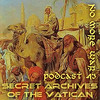
Many of the artists give their music away free or any payment goes directly to them not to fatcat shareholders of one of the big four labels. Our own globally-flavoured music continues to do well. More and more people are reading this very blog. Many of my friends have broadened their listening habits into realms they wouldn't have imagined fifteen years ago. Several of them have joined the Broken Drum Records team. I don't know what personal agendas some of the crew may have with our musical work - perhaps I'll ask them and write about that next time.
Resistance isn't futile!
